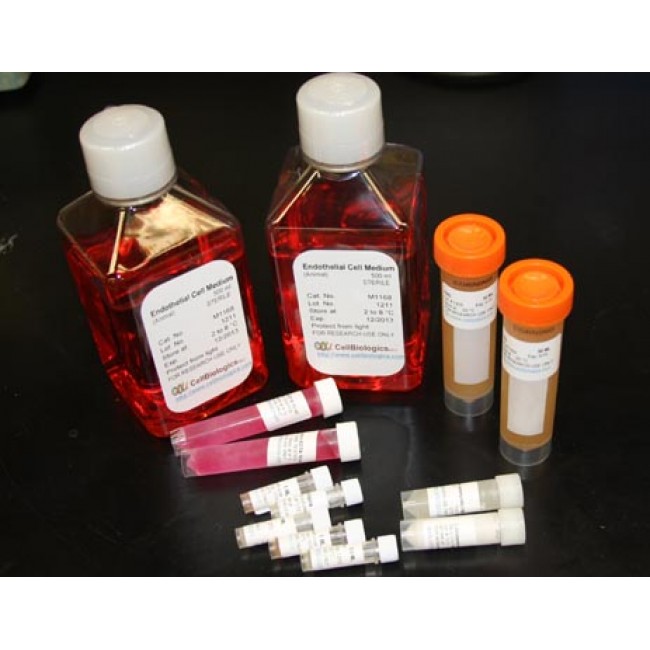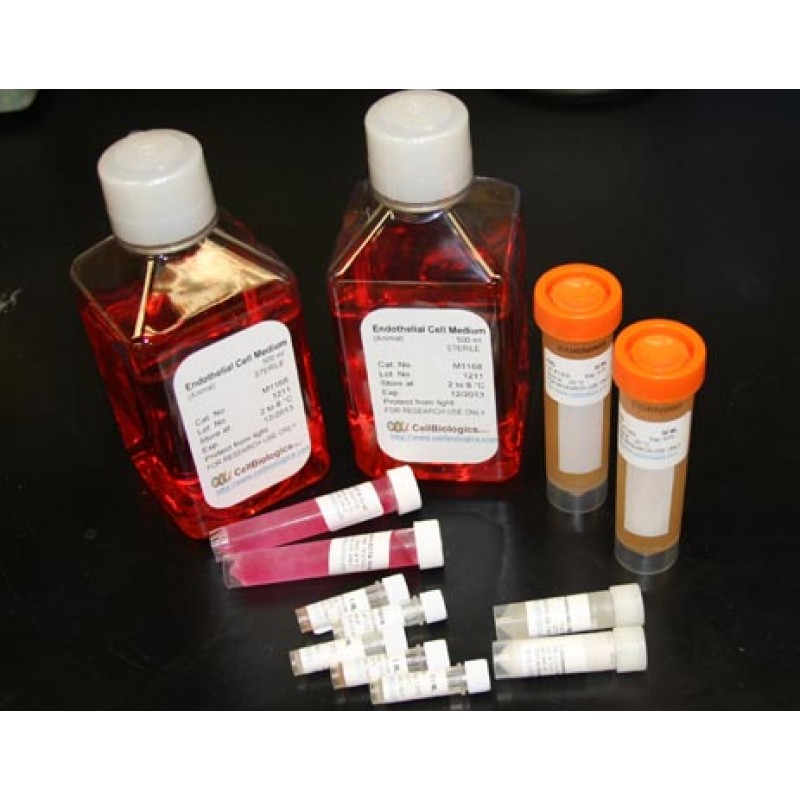Pigment epithelium-derived factor (PEDF), a 50-kDa secreted glycoprotein, is widely expressed throughout the human body, with expression decreasing during human hepatocellular carcinoma and breast cancer progression. PEDF binds to a cell membrane receptor to exhibit multifunctional activity in many cell types but its signaling mechanisms are largely unknown. PEDF exerts anti-angiogenic activity by arresting VEGF- or bFGF-mediated endothelial cell migration, inhibiting capillary morphogenesis, and inducing endothelial cell apoptosis. In human dermal microvascular cells, PEDF induces FasL expression and subsequently activation of caspase 8, which initiates the downstream apoptotic cascade. In human umbilical vein endothelial cells (HUVECs), its induction of apoptosis was shown to depend on p38 MAPK activity and to involve activation of caspases 8 and 9.


